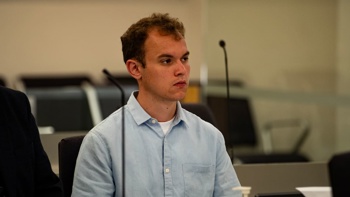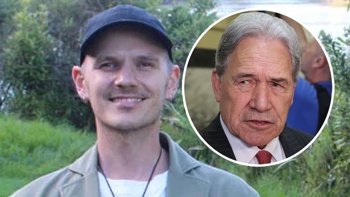A bill aiming to restore an amended Three Strikes sentencing law will be introduced in the House today as Question Time returns.
Associate Justice Minister Nicole McKee confirmed the Sentencing (Reinstatement of Three Strikes Regime) Amendment Bill would be introduced today and its first reading would take place later this week before being referred to the Justice select committee.
The Herald today reported how the original law, repealed by Labour in 2022, put a serious straitjacket on judicial discretion by requiring judges to impose certain sentences for specific offences regardless of the severity of the offending: a first strike led to a normal sentence and a warning, a second strike led to a normal sentence but no parole, and a third one led to the maximum sentence with no parole.
Judges could allow for parole at strike three (and strike two for murder) under the “manifestly unjust” clause, but still had to impose the maximum sentence for the crime. The Court of Appeal later ruled that judges could use the clause to allow for parole at strike two as well, even though there was no specific wording in the law enabling it.
Under the proposal for Three Strikes 2.0, judges would be able to use the clause not only at strike two and three for parole, but also for the sentence length at strike three if the maximum sentence was deemed too unfair in the circumstances.
That essentially allowed a judge to impose a sentence as if Three Strikes didn’t exist, the only difference being that the offender would have a further strike and warning to their name.
McKee, in a statement, noted the various changes to the new version of Three Strikes, including the judicial discretion, adding a new strangulation and suffocation offence to the regime, applying the law only to sentences longer than two years and allowing a “limited benefit” for guilty pleas to avoid re-traumatising victims and to reduce court delays.
Justice Minister Paul Goldsmith this morning said he didn’t agree with critics of the legislation, citing the bill’s differences to the previous law.
“But fundamentally, we hold the view that there needs to be tougher consequences for our worst repeated serious offenders.
“I think we’ve struck the balance right.”

Justice Minister Paul Goldsmith batted away suggestions the Government hadn't appropriately consulted Māori on the legislation. Photo / Mark Mitchell
He defended the Government against suggestions it hadn’t appropriately consulted with Māori, claiming Māori had an interest in implementing the law quickly because Māori faced a disproportionately high level of crime.
Labour leader Chris Hipkins said he hadn’t seen evidence Three Strikes was effective.
“It certainly doesn’t act as a deterrent, which seems to be the main thrust of the argument for those who are in favour of it.”
He believed while politicians should decide what maximum sentences judges could impose, it would be an over-reach for MPs to decide the minimum level of sentences for people convicted.
“I think determining where on that spectrum individual cases end up, that shouldn’t be a political process.”
Question Time returns
Hipkins is expected to lead the Opposition’s interrogation of the Government in today’s Question Time with inquiries about the future of ferry services in the Cook Strait.
The Government, however, will be celebrating its decision to spend more than $600 million to allow drug-buying agency Pharmac to purchase up to 54 new medicines, including up to 26 drugs addressing cancer.
This is the first sitting week at Parliament in about a month, given there have been two weeks of recess - when MPs are in their electorates - and the inaugural scrutiny week, which involved ministers being grilled by Opposition MPs during extended select committee hearings concerning Budget 24 matters last week.
Hipkins, who has today’s second question, was likely to question Prime Minister Christopher Luxon about the Government’s plans to upgrade Cook Strait ferry services after Interislander ferry Aratere ran aground on Friday night.
There were two questions listed relating to yesterday’s Pharmac announcement, one for Health Minister Dr Shane Reti and another for Pharmac Minister David Seymour.
Adam Pearse is a political reporter in the NZ Herald Press Gallery team, based at Parliament. He has worked for NZME since 2018, covering sport and health for the Northern Advocate in Whangārei before moving to the NZ Herald in Auckland, covering Covid-19 and crime.
Take your Radio, Podcasts and Music with you









